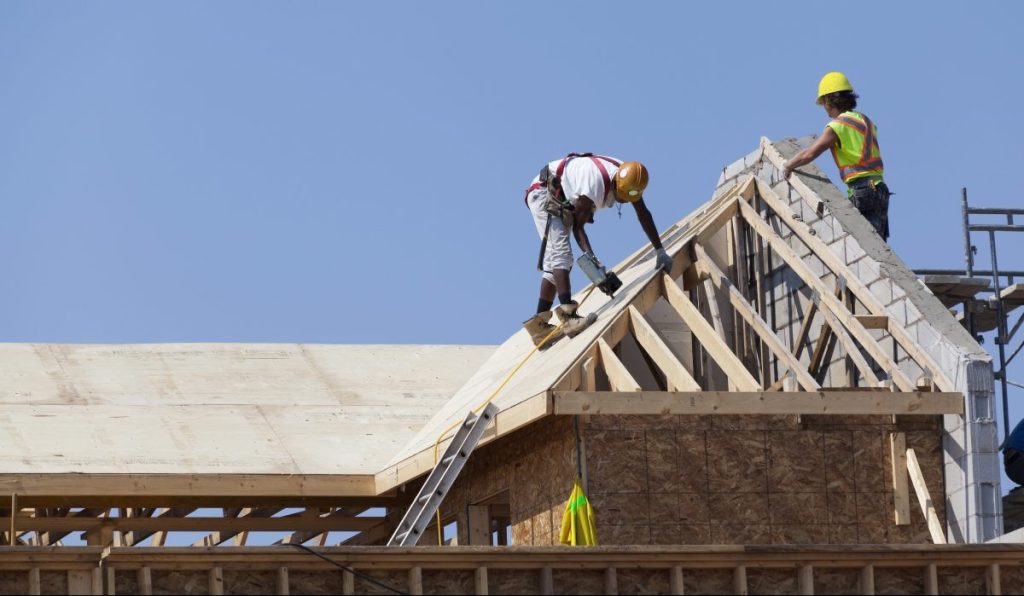The latest report from the U.S. Census found that new home starts from homebuilders fell a staggering 10.3% from January, and 9.3% from February 2020.
The culprits? High building material costs and low inventory, dueling problems that continue to plague homebuilders into the second quarter of 2021.
Single-family starts decreased 8.5% to a 1.04 million seasonally adjusted annual rate. The multifamily sector, which includes apartment buildings and condos, decreased 15% to a 381,000 pace. In total, the seasonally adjusted annual rate registered at only 1.42 million units in February.
“Builders are slowing some production of single-family homes as lumber and other material costs, along with interest rates, continue to rise,” said Chuck Fowke, chairman of the National Association of Home Builders (NAHB). “Shortages of lumber and other building materials, including appliances, are putting future construction expansion at risk.”
Regionally, starts were 39.5% lower in the Northeast, 34.9% lower in the Midwest, and 9.7% lower in the South in February. The West was the only region with an increase in new starts, a 17.6% increase from last month. Overall permits decreased 10.8% to a 1.68 million unit annualized rate in February.
Strategies for MSR Management in 2021
Join expert panelists to review current MSR market trends and strategies to optimize your portfolio. Several mortgage lenders will also join the conversation to discuss their experiences, challenges and strategies to address improved SRP levels, growing portfolio sizes, capacity implications and cash flow needs.
Presented by: MCT
NAHB Chief Economist Robert Dietz added that the winter storm that hit Texas and other parts of the South greatly impacted February’s numbers. Of course, rising mortgage rates have hurt too.
“Single-family home building is forecasted to expand in 2021, but at a slower rate as housing affordability is challenged by higher mortgage rates and rising construction costs,” he said.
With the supply of existing homes at all-time lows, homebuilders will continue to have a key role to play in addressing the inventory shortage for a market chock full of eager home shoppers, according to Zillow Economist Matthew Speakman. But the lack of softwood lumber – and high price for stock that is available – is problem many see as only being solved by the reopening of mills in the U.S. and Canada.
Vaccine distribution should help, as most of the aforementioned mills shut down in early 2020 due to COVID-19 health concerns.
“Relentless increases in lumber prices are also likely eating into activity,” Speakman said. “By some measures, lumber prices have surged almost 59% over the past year – more than any 12-month period since 1947.”
But next month could show an immediate reversal in the number of new home starts, minus another freak winter storm and the continued vaccine rollout.
“It’s important to keep the bigger picture in focus and not overreact to what may turn out to be a one-month blip,” Speakman said. “The monthly decline in permits, the largest one-month decline since April, and downshift in starts can likely be attributed at least in part to the severe winter weather. And despite the monthly declines, both permits and starts are still near their highest levels in more than a decade.”
First American Deputy Chief Economist Odeta Kushi reported a month-over-month increase of 5,300 residential construction building jobs. This, Kushi said, is an indicator of long-term future housing supply.
“Nothing sells like a shortage,” Kushi said. “Consider the impact of construction labor on the velocity of new home construction. The growth in residential construction jobs supports further improvement in the pace of homebuilding because building a home does not readily lend itself to outsourcing and automation. Residential construction employment is easing as a headwind to future housing starts.”






